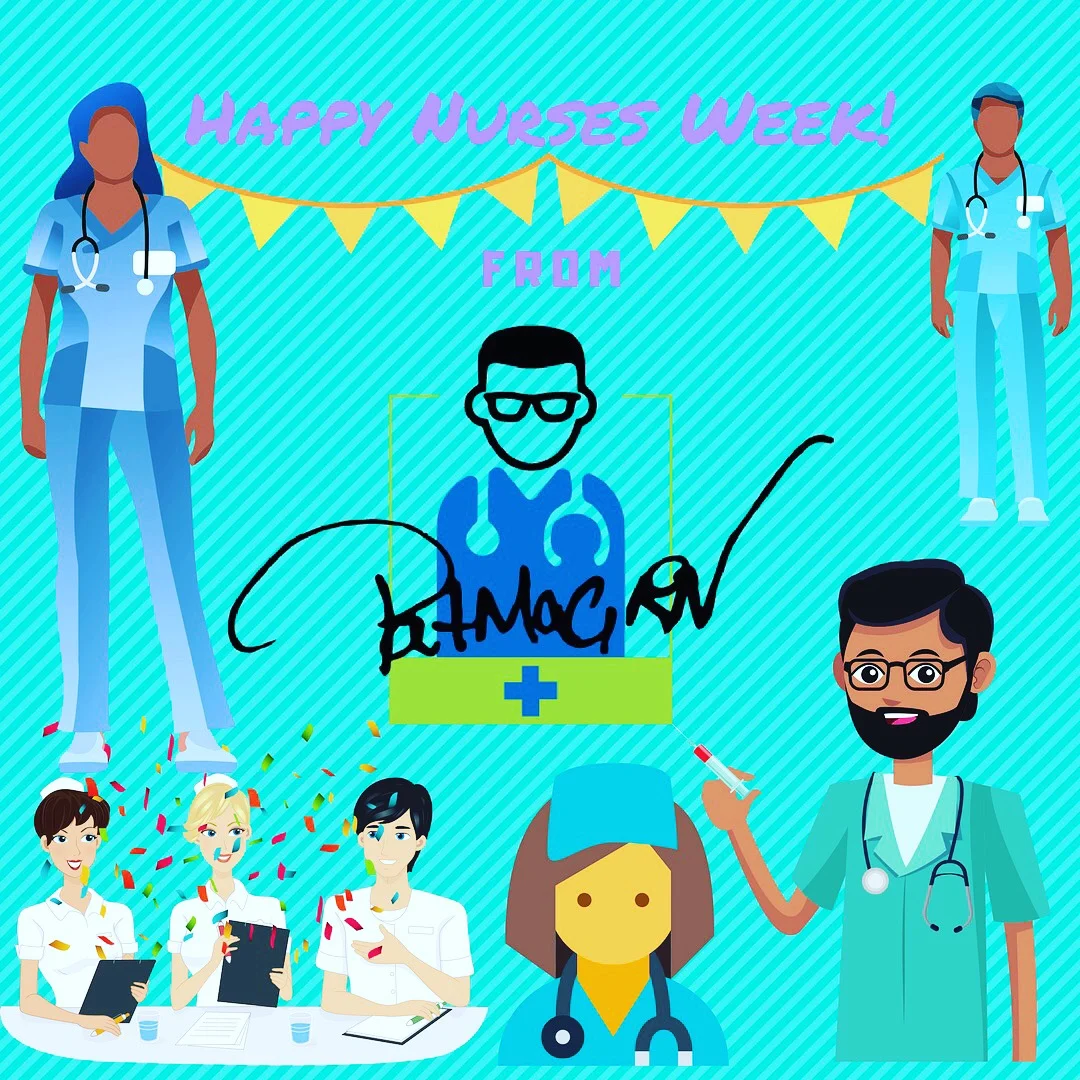Lending a helping hand! Camaraderie in Nursing!
Me visiting some of my old coworkers from a Travel Assignment I did!
Now y’all didn’t think I was going to let April pass and not give you something to think on, did you?
One of the nurse influencers that I follow Kati Kleber, RN, from FreshRN.com, posted a question on twitter a day or 2 ago and it went along the lines of this months post, so I decided to incorporate into my discussion this week. Camaraderie in nursing!
Nursing is a profession that thrives when we seek to help not only our patients, but our colleagues as well. Camaraderie, is a spirit and sense of friendly fellowship, fortifies nursing care and the interdisciplinary team. The opposite of camaraderie can create a work-environment that is calamitous and toxic.
With nurses week quickly approaching, I wanted to talk about one of the most beautiful parts of my profession, when nurses work together and make things happen.
What camaraderie is?
Camaraderie is unique, even when compared to unity, because it establishes that a group can work together and also enjoy it! Whether in school or on the job, many nurses come to view, at least of some their colleagues, as close friends or family. That sense of family that exists in nursing is what makes some of the less glorious responsibilities of the profession bearable. Camaraderie allows for both autonomy and assistance. Camaraderie comes in many forms, whether its giving a struggling nurse a pep talk when dealing with a difficult patient, family member, or colleague. Or whether it is helping another nurse with tasks, because they are overloaded, occupied, or on break. The golden rule “Treat others as you wish to be treated” is a large component of cultivating camaraderie at our place of work or school.
What camaraderie is not?
Camaraderie is not an excuse or tool of laziness or excessive dependence. It is also not an opportunity to be selfish and dump your problems and mood on everyone else.
How can we cultivate a culture of camaraderie at work or at school?
1. Be thankful and show it! - I know this may sound cliche, but saying thank you, even for simple things such as someone grabbing an extra blanket for one of your patients, can make other feel like you appreciate them. Plus, if feels good to know that others have helped you, especially when you didn’t ask for it, so show your appreciation.
Example: I am a float pool nurse, whose full-time job it is to go and help units in need of staff, yet the culture at my place of employment is that nurses on every unit always say thank you for coming to help us! This blew my mind. I’ve worked in float pool at opther institutions and even if I knew the staff appreciated having and extra nurse, it was never verbalized. I never a expect a thank you for doing my job, because doing my job well is a personal thing, regardless of external factors, but receiving a thank you from my colleagues feels good, I’m not going to lie!
2. Be gracious! - Graciousness can be an extension of thanfulnesss. Gracious behavior invloves being curtesous (there goes that infamous golden rule again), even in movements with the same curtesy isn’t exntded to you.
Example: There are 2 types of nurses that I have worked with throughout my career thus far. The ones who will hear an IV pump beeping and walk past the room to tell you it was beeping. Then there are the ones who hear the IV pump beeping and stop to see why its beeping and address the problem, if it is something simple like a kinked line. If the issue is more complex, these same nurses will silence the pump and immediately let me know that the bag of fluid is almost empty or there is an alert that specifically needs the primary nurses attention. Of course, I appreciate anyone taking the time to even let me know my pumps are beeping, but knowing that I have colleagues who will take the time to assess the needs, so I can be efficient with my time, is so heart-warming. There are, of course, times when that nurse is also busy and can’t stop to assess and the best they can do is just make me aware.
3. Be hospitable! - Even if you rarely work with others who are not from your unit, you can still exerted hospitality to the routine staff on your unit or in your clinical group at school. Offer to provide any needed information or given them your name so they can call you on your Vocera (phone) if they need an insulin sign off or something. You can do this, regardless if you are a nurse, nursing student, or a CNA. Some of the best help I receive as a floater are from the CNAs who are permanent workers on the unit I’m floating to.
Example: At my current place of employment, I am fortunate enough to have a culture of gratitude and hospitability on virtually all the units I float to (and that’s a lot). Unit CNAs, RNs, and Charge Nurses, regularly go out of their way to find me and ask if I need anything and offer me unit tours if it is my first time on the unit. They do this automatically, without me having to ask. It makes my job of helping them easier.
4. Be Flexible! - My work as a float pool nurse means that flexibility is a skill that I must constantly cultivate. However, even if you never float, you can be flexible in your own clinical situation. Flexibility doesn’t mean letting other running over you, but it means being available to occasionally take on inconveniences, in a safe manner, to assist another colleague who may be experiencing challenges in their shift. Flexibility endears others to you and and endears you to others when it is reciprocated.
Example: Offering to take the first admission (hand in hand with the gracious courtesy thing) when you see a new grad or even an experienced nurse struggling with a heavy assignment. You could offer take a later break for someone who may have been experiencing a more trying time during their shift. Let them take a breather, even if it’s just for 15 minutes, will be a life-saver, even if that 15 minutes is just to let them catch up charting (we always need to catch up on that). You dont have to go around being superwoman or superman, making everthying hard on yourself. No, but being flexible increases the sense of camaraderie in social situations.
So remember, camaraderie is what make you make of it and it can make nursing a joy. You can even cultivate camaraderie with your patients. Stopping in just to check on them, asking them if they would like to take a walk, asking the charge nurse to speak with them when they are experiencing problems.
As always, happy nursing!
Patrick McMurray, BSN, RN
PatMacRN







